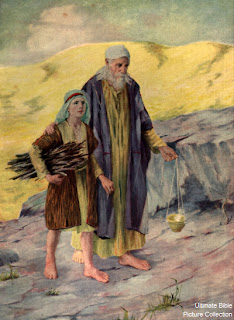Day 18: ‘Pharaoh’s heart became hard and he would not let the people
go.’ Exodus 8:32.
From Chapter’s 7 through 11 in the Book of Exodus, eleven times
we read some form of these words, ‘Pharaoh’s heart became hard’. Eleven times!
These chapters are of course from the ten plagues sent by God upon Egypt to
prove to Pharaoh that the God of the Israelites demands their freedom. Ten
plagues in all and all because Pharaoh’s heart was hardened to the will of God
and to the welfare of God’s people
If I am
honest with myself I too have a hard heart many times and it causes bad things
to happen. My bad experiences, my hurts, my difficulties taken together can harden
my heart toward God, his direction and will for my life. My heart also becomes
hardened to people in my life who hurt, harass and even simply annoy me. Maybe
worse of all my heart has become hardened toward those whom I have been called
to love such as my family, parishioners, and the least of these in society.
The
tragedy of hardened hearts are two fold. First are broken relationships.
Marriages do not fail overnight. It is often a progression of little steps. A
harsh word here, lack of follow through there, you know how it often goes.
Until one day the marriage is over and the couple wonders how they became so
distant and hard hearted toward one another. Sadly the same is true with God
when we harden our hearts. We begin so close and one day we find ourselves
distant wondering if we will ever be close again.
Second, the result is God’s will
can not be accomplished. Think of it as a football team who is fighting with
each other and not understanding and anticipating each other’s play calls or
actions on the field. The result will be a team that can not accomplish their
goals of moving down the field and scoring touchdowns. So too with us and God
if we are not in communication, in strong relationship with God, we can not
hear, reside in or accomplish God’s will.
Hardening
our hearts inevitably leads to broken relationships and broken roads. But the
Good News is that with God all things are possible. God gave pharaoh nine
opportunities to soften his heart towards his will and his people before the
final plague that resulted in his son’s death. God never stops trying and never
gives up on us. Yes there are consequences in our lives due to the hardening of
our hearts, but even in our brokenness God is always attempting to soften our
hearts. It is never, ever too late to soften our hearts. Our future may now be
different, but God can and will bless it wherever we are.
All we need to do is to say yes to
God; the easiest and hardest action toward God that we will ever do.





